Is Fury a true story? Was the Fury tank an actual Sherman? It sure seems to be. In this article, the renowned and redoubtable Red2Alpha73 (Mike Durand) reviews Belton Y. Cooper's 1998 memoir Death Traps: The Survival of an American Armored Division in World War II.
Fury Tank: a Real Tank?
Death Traps by Belton Cooper
We'll start with an excerpt.
“In the fighting around Hastenrath and Scherpenseel, the tankers, without adequate infantry support, performed almost superhuman acts of heroism to hold on throughout the night. It was reported that one of the tankers, in his tank on a road junction, was the only surviving member of his crew but was determined to hold his position at all costs.
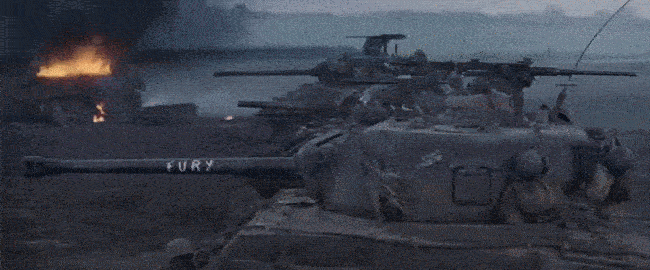
This article originally ran in 2017.
The lone tanker had previously sighted his 76mm tank gun down the middle of the road. He depressed the mechanism slightly and loaded a 76mm HE [high explosive—used against non-armored targets]. As the Germans advanced in parallel columns along each side of the road, he fired. The HE shell hit the ground about 150 feet in front of the tank and ricocheted to a height of about three feet before exploding.
The shock took the Germans completely by surprise. The American tanker continued to fire all the HE he had as rapidly as possible, swinging the turret around to spray the German infantry, who were trying to escape into the fields on both sides of the highway. Loading and firing the gun by himself was extremely difficult because he had to cross to the other side of the gun to load and then come back to the gunner's position to fire.
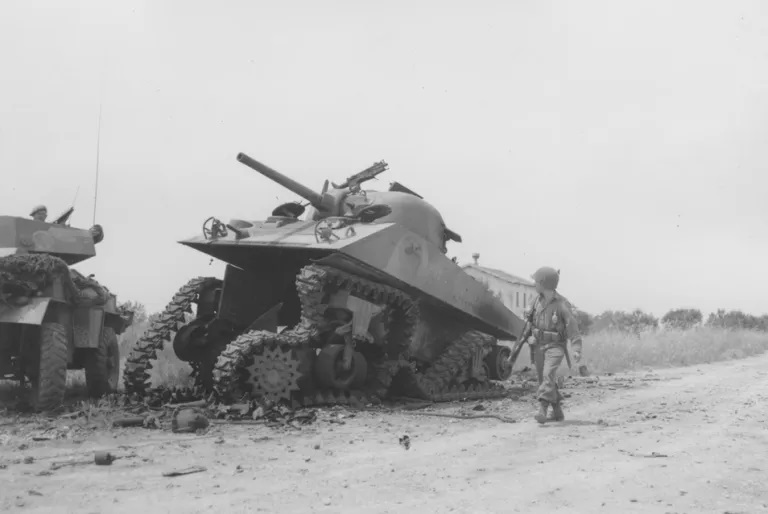
After exhausting his HE and .30-caliber ammunition, he opened the turret and swung the .50 caliber around on the ring mount and opened fire again. He continued firing until all of his .50-caliber ammunition was exhausted, then he grabbed a .45 submachine gun from the fighting compartment and opened fire with this. After using all the ammunition from his Thompson and his pistol, he dropped back in the turret and closed the hatch.
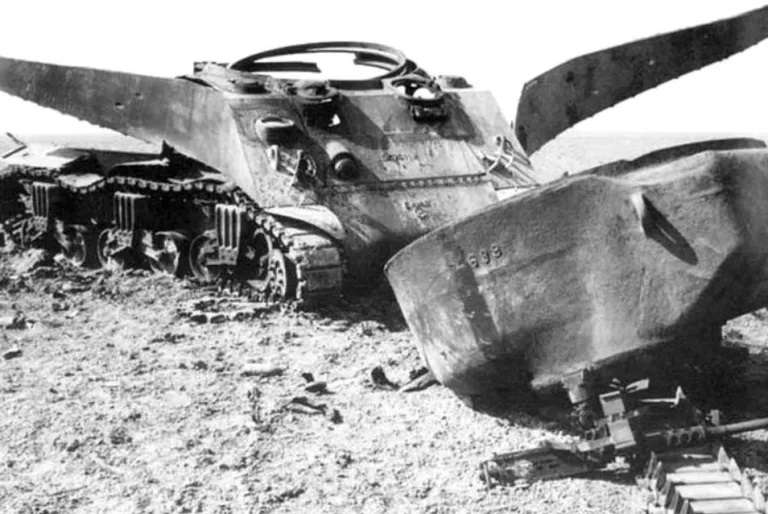
He opened his box of hand grenades and grabbed one. When he heard German infantry climb onto the back of the tank, he pulled the pin, cracked the turret hatch slightly, and threw the grenade. It killed all the Germans on the back of the tank and those around it on the ground. He continued to do this until all of his hand grenades were gone; then he closed the hatch and secured it.
By this time, the German infantry unit apparently decided to bypass the tank. From the vicious rate of fire, they must have assumed they had encountered an entire reinforced roadblock. When our infantry arrived the next day, they found the brave young tanker still alive in his tank. The entire surrounding area was littered with German dead and wounded. This, to me, was one of the most courageous acts of individual heroism in World War II.”
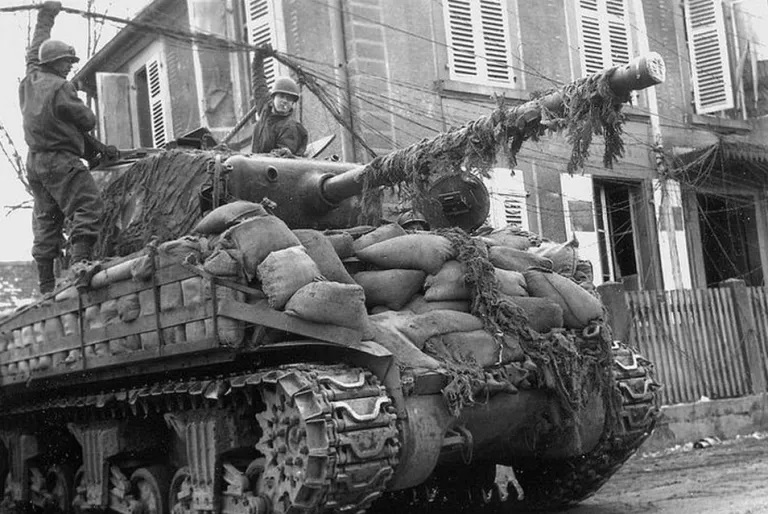
If you've seen director David Ayer's 2014 war drama Fury, starring Brad Pitt, you'll recognize the similarities between the movie and the story above, an excerpt from Belton Y. Cooper's 1998 memoir Death Traps: The Survival of an American Armored Division in World War II.
His description of the lone tanker heroically holding off waves of German infantry is what inspired Director Ayer to write the screenplay for the movie Fury.
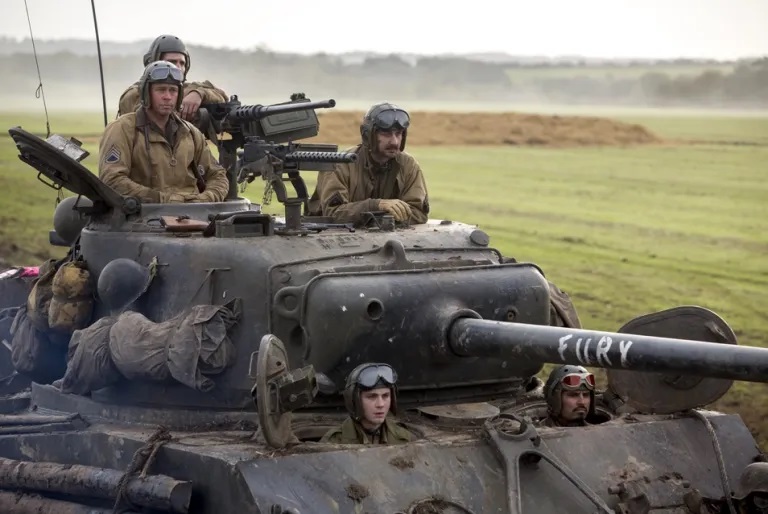
You might also like…GRUNT LIFE: INFANTRY AT WAR
From 1941 through 1945, Cooper served as an officer in the 3rd Armored Division's Maintenance Battalion as one of three Ordnance Liaison Officers. During the day, and frequently under fire, he oversaw the recovery, repair, and maintenance of American tanks.
The nights saw him, his driver, and a wire-haired terrier named Bitch delivering that day's Combat Loss Reports for Combat Command B's tanks by “running the gauntlet” in a Jeep at speeds of sixty miles an hour (without the benefit of headlights) through the “void,” an area between forward U.S. elements and the division's logistical trains.
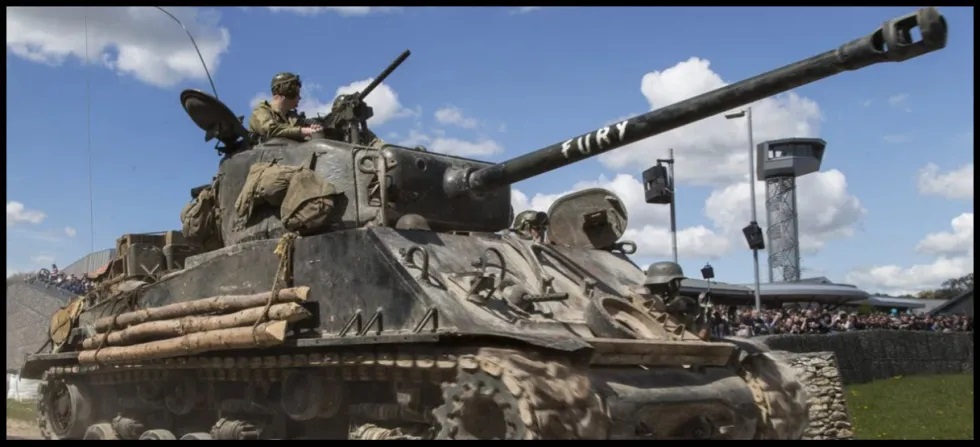
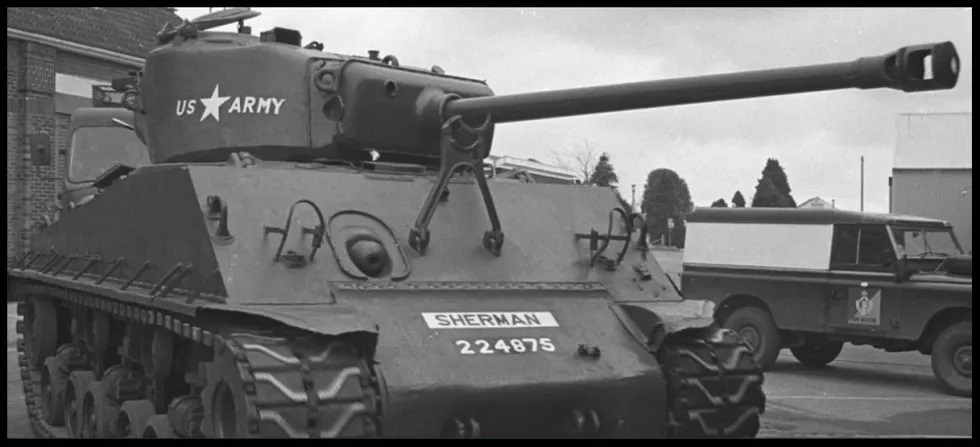
During the day the armored units frequently bypassed German units. Since the trailing infantry had not come forward to secure the area it was assumed that the enemy was still active in the “void.” Should they ever be captured, a thermite grenade in the back of the Jeep would prevent the documents from falling into enemy hands.
From Normandy through France and then through Belgium into Germany for the remainder of the war, Lt. Cooper and a series of drivers – one severely wounded by a rocket fired by a BF-109 – completed this dangerous drive every twenty-four hours. The next day saw them frequently leading a column of replacement M4 Sherman tanks crewed by inexperienced tankers, and more and more as the war progressed and losses became staggering, men who had never even seen a tank before, like the character Norman Ellis in Fury.
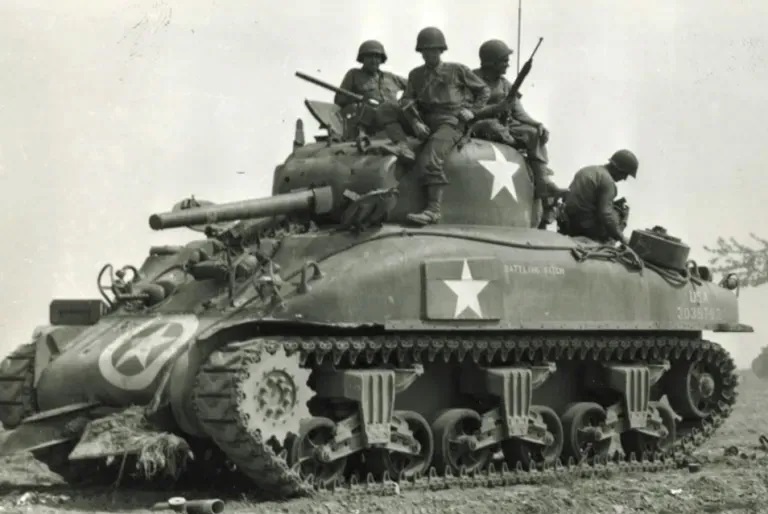
Through it all Cooper is shot at, shelled, strafed, mortared, blown up, and frostbitten, all while witnessing some of the greatest events in history. As if that's not enough, Cooper's training as an engineer and daily interactions with damaged and destroyed M4s gave him a particular insight into the failings of that series of tanks, of which there are many.
Cooper knows his tanks, and you will too –down to how much ground pressure a Sherman tank exerts, how that played a critical role in the effectiveness of our armored forces, and the truly astonishing casualty rate in the European Theater. He spares no sympathy on the Sherman nor the man who insisted on producing it over the better armed and armored M26 Pershing tank but heaps praise on not only the American Soldier but in particular the tankers, infantrymen, and maintenance men who kept the armored might of the 3rd Armored Division moving forward.
He knows he could have had it much, much worse.
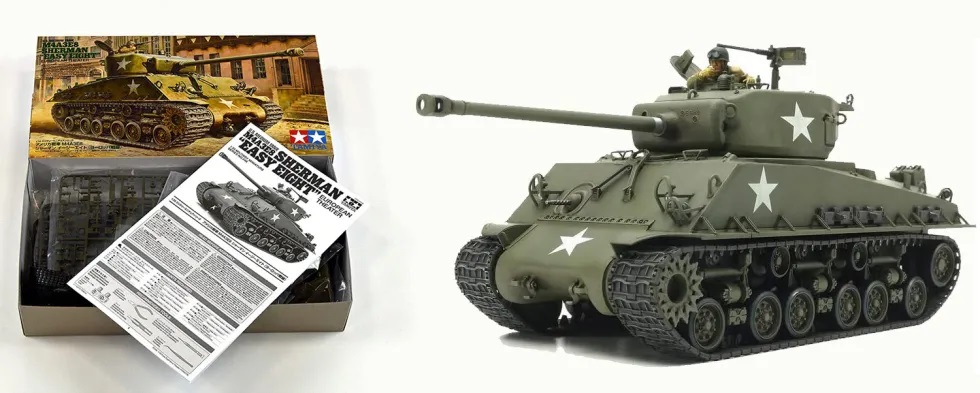
A good portion of the book is strictly historical, dedicated to covering the combat actions of the division. While informative, I found them occupying too many pages that could have been dedicated to Lt. Cooper's personal observations and adventures. Instead, the more personal aspects of the story came in small bits, like anecdotes, that left me wanting more–more about the V2 launches he saw, the time he inspected a ME-262 or was OIC of up-armoring the only M26A1E2 Super Pershing sent to Europe and used in combat.
Sadly, those are stories we will never hear since Mr. Cooper passed away in 2007. Fortunately for us, though, he did leave this fine book. Over the years I've read a lot of memoirs authored by World War II veterans, but this story rates as the most unique of all of them.
I give it 4 ½ knocked out Tiger tanks.
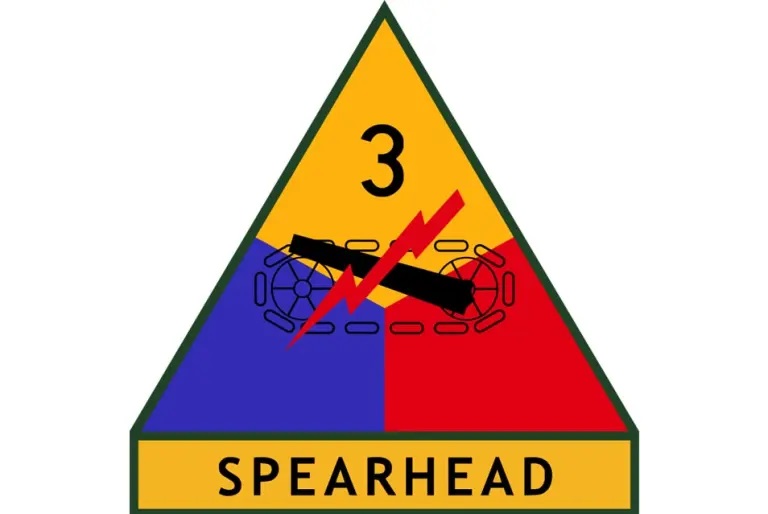
Mike Durand
Read the original article in its entirety at Breach-Bang-Clear.
READ NEXT: Energy Chief Insists All Military Vehicles To Be All-Electric By 2030


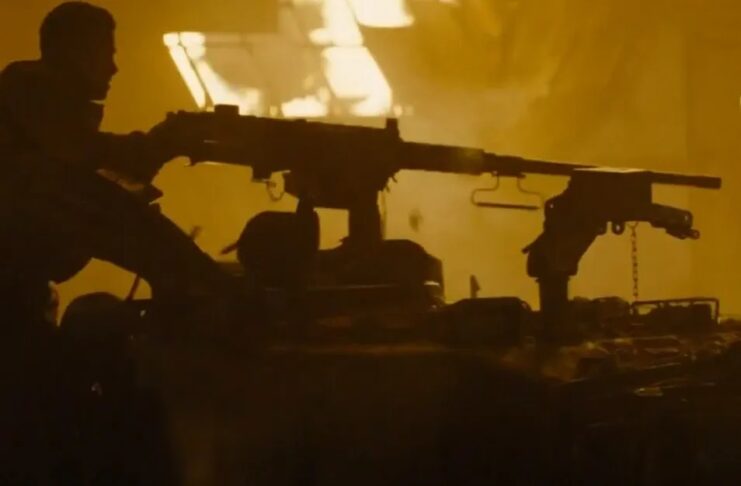
Awesome movie Fury
In league with Saving Pvt Ryan, Das Boot , U571